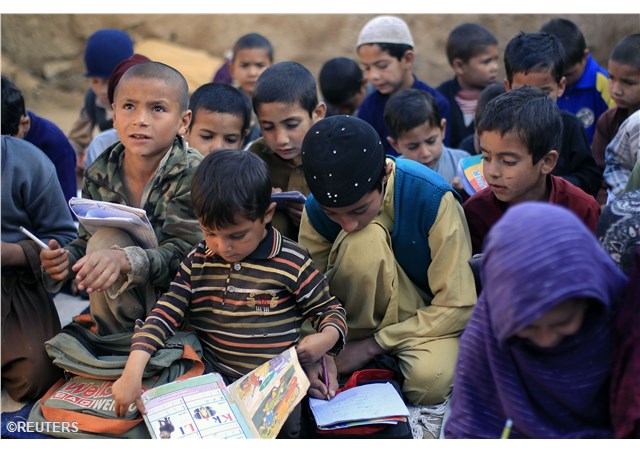
Despite gains, world's education goals far from achieved – UN

Just one third of countries have achieved all the measurable education goals set by world leaders in 2000, and only half of all countries have achieved universal primary enrolment, according to the United Nations Educational Scientific and Cultural Organization (UNESCO). “The world has made tremendous progress towards 'Education for All'…however the agenda is far from finished,” said UNESCO Director-General, Irina Bokova on Thursday, releasing a report entitled, “Education for All 2000-2015: Achievements and Challenges.” The report that tracks progress of a set of six goals ranging from improving quality of education to ensuring equal access to learning, found that 47 per cent of countries reached the goal of early childhood education, and another eight per cent were close. Twenty per cent were very far from the goal. Yet, in 2012, nearly two-thirds more children were enrolled in early childhood education than in 1999.
“Despite not meeting the 2015 deadline, millions more children are in school than would have been had the trends of the 1990s persisted,” Bokova said. “However…we need to see specific, well-funded strategies that prioritize the poorest – especially girls – improve the quality of learning and reduce the literacy gap so that education becomes meaningful and universal.” Bokova urged countries to bridge the $22 billion annual finance gap needed to achieve quality basic education for all by 2030.
As far as achieving universal primary education, particularly for girls, ethnic minorities and marginalized children, 52 per cent of countries met this goal, 10 per cent are close and the remaining 38 per cent are far or very far from achieving it. This leaves almost 100 million children not completing primary education in 2015. And the world's poorest children remain five times less likely to complete a full cycle of primary education than the richest.
At current rates, only half of all children in low-income countries are expected to complete lower secondary education by 2030. In many countries even the core goal of achieving universal primary education will remain out of reach without concerted efforts. And yet UNESCO pointed out that there has been some important progress. Around 50 million more children are enrolled in school now than were in 1999. While education is still not free in many places, cash transfer and school feeding programmes have made a positive impact on enrolment for the poor. Forty-six per cent of countries reached universal lower secondary enrolment. Globally, numbers in lower secondary education increased by 27 per cent and more than doubled in sub-Saharan Africa. (Source: UN)
| All the contents on this site are copyrighted ©. |


